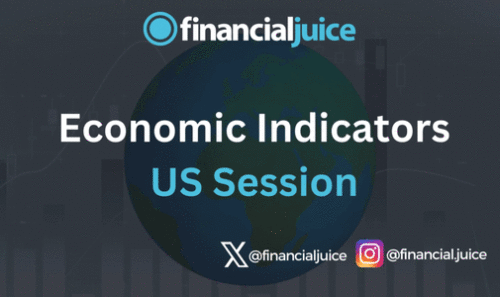Week Ahead: Economic Indicators (EU)
Hey, Traders!
For the November 25th week, here is a list of the major economic indicators being released during the EU Session, with a brief synopsis of what they represent and what to possibly expect from the markets in reaction.
Monday 25th November
04:00 ET
German IFO
The German Ifo Business Climate Index rates the current German business climate and measures expectations for the next six months. It is a composite index based on a survey of manufacturers, builders, wholesalers, and retailers.
What to expect:
A higher than expected reading should be taken as positive/bullish for the EUR, while a lower than expected reading should be taken as negative/bearish for the EUR.
Thursday 28th November
02:00 ET
German HICP
The Harmonised Index of Consumer Prices is an index of consumer prices, on the basis of a statistical methodology that has been harmonised across all EU member states.
The consumer price index (CPI) is an average measure of the level of the prices of goods and services bought for the purpose of consumption by the vast majority of households in Germany.
What to expect:
By tracking inflation, whether high or low, rising or falling, investors can anticipate how different types of investments will perform. Over the long run, the bond market will rally (fall) when increases in the CPI are small (large). The equity market rallies with the bond market because low inflation promises low interest rates and is good for profits.
Friday 29th November
02:45 ET
French GDP
Gross Domestic Product (GDP) measures the total value of a country’s industrial output over a given period. It consists of the aggregate domestic production of goods and services by individuals, businesses, and government. Quarterly publications provide a much more detailed picture of the economy than the monthly indicators, covering all of gross domestic product (GDP), sector accounts, business investment, balance of payments, consumer trends, and profitability of French companies.
What to expect:
Low levels of growth are negative to most asset classes and are common to recessionary cycles. Currency, equities, and commodities markets all exhibit enhanced degrees of volatility surrounding the GDP release.
French HICP
The Harmonized Index of Consumer Prices is an index of consumer prices, on the basis of a statistical methodology that has been harmonised across all EU member states.
The consumer price index (CPI) is an average measure of the level of the prices of goods and services bought for the purpose of consumption by the vast majority of households in France.
What to expect:
By tracking inflation, whether high or low, rising or falling, investors can anticipate how different types of investments will perform. Over the long run, the bond market will rally (fall) when increases in the CPI are small (large). The equity market rallies with the bond market because low inflation promises low interest rates and is good for profits.
03:55 ET
German Unemployment Change
Measure of the absolute change in the number of unemployed people in Germany using seasonally adjusted data.
What to expect:
A rise in this indicator has negative implications for consumer spending, as there’s less people working and therefore diminishes economic growth in the country. Generally, a reading above expected is seen as negative (or bearish) for the EUR, while a low reading is seen as positive (or bullish).
German Unemployment Rate
The unemployment rate is calculated by the Federal Employment Agency based on the number of unemployed persons as a percentage of the number of all civilian members of the labour force (dependant civilian employed persons, the self-employed family workers and unemployed).
What to expect:
If labour markets are tight, investors will be alert to possible inflationary pressures that could exist. If wage inflation threatens, it’s a good bet that interest rates will rise; bond and stock prices will fall. In contrast, when job growth is slow or negative, then interest rates are likely to decline – boosting up bond and stock prices in the process.
05:00 ET
Eurozone CPI
The consumer price index (CPI) is an average measure of the level of the prices of goods and services bought for the purpose of consumption by the vast majority of households.
What to expect:
By tracking inflation, whether high or low, rising or falling, investors can anticipate how different types of investments will perform. Over the long run, the bond market will rally (fall) when increases in the CPI are small (large). The equity market rallies with the bond market because low inflation promises low interest rates and is good for profits.



